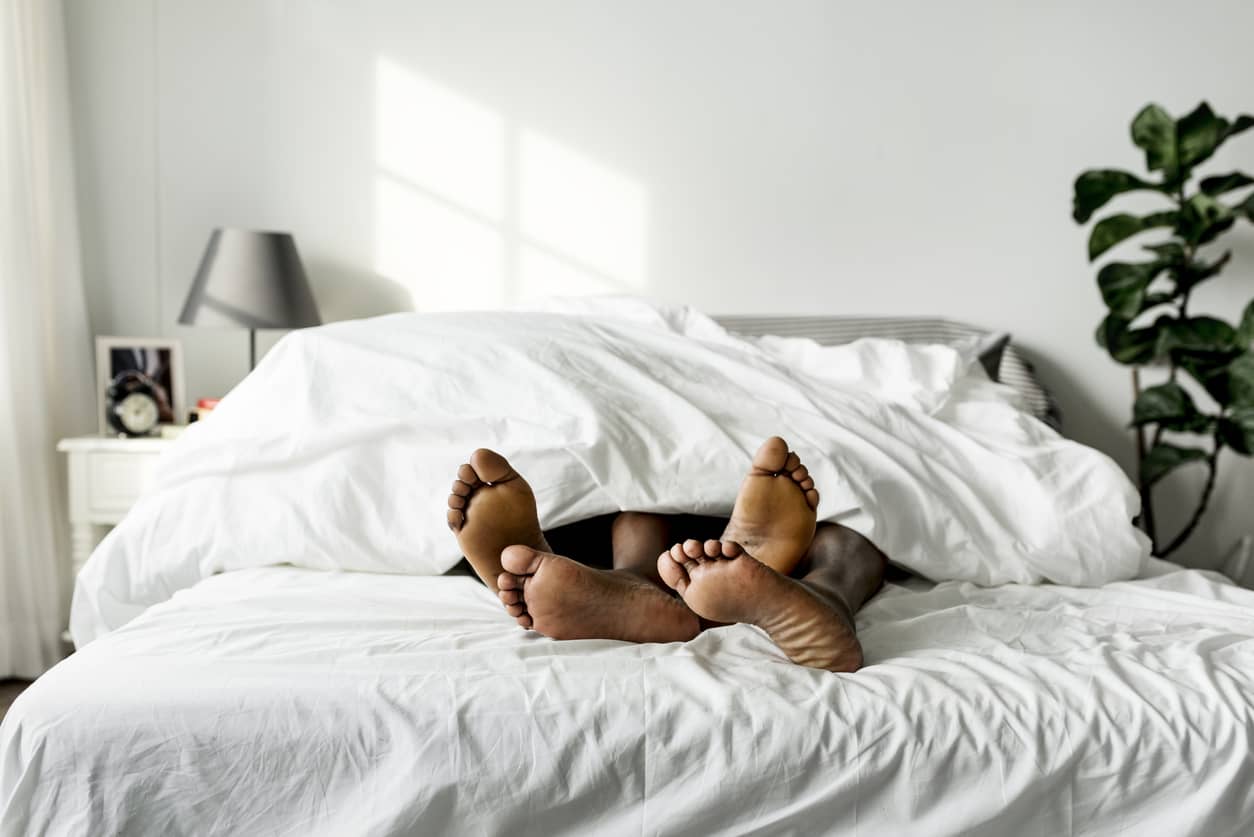What is masturbation?
When you masturbate, you touch your genitals – with your hands or a sex toy, for example – to give yourself sexual pleasure. Masturbating can lead to an orgasm – an intense feeling of pleasure, which spreads all over your body.
It’s completely normal to touch yourself in this way, whether you’re single, married, divorced, in a relationship, or anything in between. You can masturbate on your own, or in front of or with a partner.
Masturbation might be the first sexual experience you have. It can help you get to know your body and understand what you like (or don’t like) when it comes to sex.
How to masturbate
There’s no right or wrong way to masturbate, but there are some key differences depending on your genitals.
If you have a penis, masturbating often involves rubbing or moving your hand up and down your penis, and you may touch your balls (scrotum).
If you have a vagina and vulva, you might use your fingers or a sex toy to rub the area around your clitoris and/or inside your vagina.

What does masturbation do?
People touch themselves for lots of reasons. It can make you feel good, but studies also suggest masturbation can offer other benefits, including:
- reducing stress
- releasing sexual tension
- improving sleep
- boosting concentration
- improving mood
Many of these possible benefits are related to hormones that are released when you’re sexually aroused, or ‘turned on’. These hormones include:
- dopamine – the ‘feel-good hormone’, which controls your emotional responses
- endorphins – hormones that reduce pain and give you a sense of wellbeing
- oxytocin – the ‘love hormone’, involved in childbirth, breastfeeding and sex, which creates feelings of empathy and trust
Masturbation can also help you explore what you like and don’t like, before you have sex with someone else.
Does masturbation help you sleep?
It’s thought that the release of certain hormones during masturbation can help you relax, which may send you off to sleep more quickly. But more research is needed in this area.

Is masturbation safe?
It’s completely normal to masturbate as often – or as little – as you want to. And if you don’t want to touch yourself at all, that’s fine, too.
If you do it on your own, masturbation is the safest sex you can have, as it comes without the risk of pregnancy or sexually transmitted infections (STIs).
If you’re masturbating with a partner, washing your hands in between touching yourself and touching them can help prevent STIs being spread through vaginal fluid or semen. The same applies if you use any sex toys while masturbating with other people.
Side effects of masturbation
There are little to no side effects of masturbation. If you do it a lot in a short space of time, you might notice some chafing or sore skin. Or if you have a penis, it might become swollen (also known as oedema). Both issues are generally harmless and should go away on their own after a few days.
Masturbation myths
Let’s take a look at some of the most common myths around masturbation.
Does masturbating make your penis smaller?
There’s no evidence that masturbation will cause your penis to shrink. In fact, masturbation usually leads to an erection, when your penis grows in size. But this doesn’t last long – your penis will return to its normal size after you come (ejaculate).
Can masturbating affect your hair growth?
There’s no link between masturbation and hair loss. If you’re losing hair, it’s more likely to be due to a genetic condition, such as male or female pattern baldness. If you’re concerned about hair loss, see a doctor.
Does masturbation cause blindness?
Masturbation doesn’t usually cause any harm, and it certainly doesn’t cause blindness.
But while it’s generally considered normal now, masturbation hasn’t always been accepted. At one point, it was even seen as a cause of mental illness, and something that could lead to insanity and tuberculosis.
Just to be clear, none of these claims are true.
When to see a doctor
Touching yourself is totally normal, and can be part of a healthy sex life. But if you masturbate so much that it’s getting in the way of your daily life, you might have an addiction.
Consider speaking to a doctor if:
- masturbation takes up a lot of your time
- your life or work is suffering because of masturbation
- you choose masturbation over seeing friends or going to social events
- you masturbate in public when you would rather not
- you masturbate when you're not turned on
- masturbation is affecting your sex life with your partner
- you masturbate to cope with negative thoughts and feelings
- you get upset or feel guilty after masturbating
- you think about masturbating a lot
Your health questions answered
Does masturbation cause acne?
Answered by: Healthily’s medical team
“Masturbation doesn’t cause acne. However, you’re likely to first try masturbating during puberty, which is when your body sexually matures and begins to release lots of hormones. These changes can lead to oilier skin in some people, which can cause clogged pores and spots.”
Can you run out of sperm?
Answered by: Healthily’s medical team
“If you have a penis and you come (ejaculate) during masturbation or sex, you don’t release all your sperm at once. Plus, your body is constantly making more sperm: the average person with a penis makes millions of sperm a day. Some studies suggest that if you ejaculate more often, your overall sperm count slightly decreases – but this is very unlikely to affect your chances of having children.”
Key takeaways
- masturbation is when you touch your genitals for sexual pleasure, which can lead to an orgasm
- masturbation is normal, healthy and the safest sex you can have
- there are lots of myths about masturbation, including that it causes blindness and hair loss, but they’re not true
- you might notice sore skin if you masturbate a lot, but this isn’t harmful and should go away on its own
- it’s normal to masturbate as much as you like, but you might want to see a doctor if you think it’s getting in the way of your daily life







